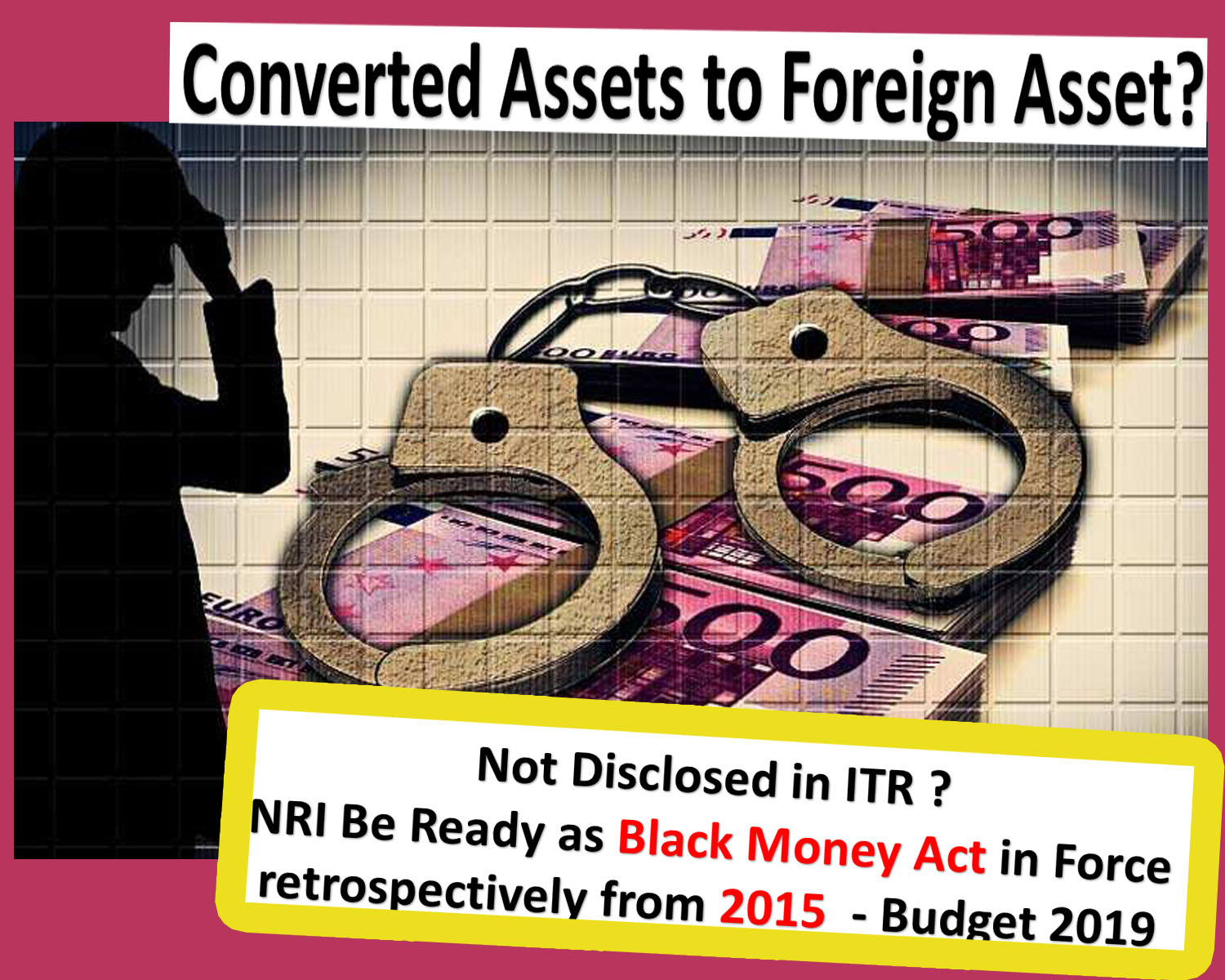New NRI’s targeted in the India’s Income Tax Evasion Crackdown

New NRI's targeted in the India's Income Tax Evasion Crackdown
The income tax authorities in India are looking into the ‘residential’ status of many non-resident Indians (NRIs) with an aim to target undisclosed assets overseas. Read about India’s Income Tax Evasion Crackdown.
Many NRIs have got notices from the IT department regarding the reopening of tax assessments of the previous 5-6 years. They were asked to provide their passport photocopies as well.

The 2019 federal budget of India has extended the Black Money Act 2015 to even non-resident persons who were residents of India at the time of acquisition of the foreign asset or at the time of earning the undisclosed foreign income, if this was post 1 July 2015. This move followed reports of a lot of HNI’s (High Net Worth Individuals) moving abroad and also getting their residency status changed.
New Rulings for NRI’s by Finance Minister Nirmala Sitharaman
Finance minister Nirmala Sitharaman planned to get the definition of ‘assessee’ changed retrospectively from July 1, 2015, in order to include a non-resident /resident though not ordinarily resident, who had been living in India in a particular year prior to the acquisition of an undisclosed asset.
A resident can get an NRI status only if he/she stays overseas for over 182 days. According to the law, if a person has resided in India for more than 60 days in one year, he/she is a ‘resident’ for that specific year and also if he has resided in India for 365 days for four years prior to that year.
India’s Income Tax Evasion Crackdown
Because of the strict tax implications, most of the Indians make sure their time spent in India and abroad is carefully divided. Though an NRI is spared of taxes on income received outside India, a resident has to pay tax on any global earnings.
As per the law, those evading tax have to pay about 30% tax in addition to a penalty of 90%. They can also face about 10 years of imprisonment. Tax experts have stated that the prosecution with a retrospective effect could be questioned in courts, although the retrospective nature along with the penalty, tax, and confiscation of assets might still hold.


 ITAT Amritsar: No Section 269SS Violation for One-Time Cash Payment Before Sub-Registrar
ITAT Amritsar: No Section 269SS Violation for One-Time Cash Payment Before Sub-Registrar  Tax Officials Unleash Digital Dragnet: How New Raid Powers Redefine Privacy, Property Rights in India and likely to Fuel Corruption
Tax Officials Unleash Digital Dragnet: How New Raid Powers Redefine Privacy, Property Rights in India and likely to Fuel Corruption  Income Tax Department Rewards for Reporting Tax Evasion: A Comprehensive Guide
Income Tax Department Rewards for Reporting Tax Evasion: A Comprehensive Guide  Forfeiture of Gratuity by Employer- What are the Remedies for an employee- Can employer be challenged?
Forfeiture of Gratuity by Employer- What are the Remedies for an employee- Can employer be challenged?  Employer can forfeit gratuity of an employee in case of moral turpitude
Employer can forfeit gratuity of an employee in case of moral turpitude  Diving Deeper: The Impact of the New Tax Bill on Dairy and Farming Income
Diving Deeper: The Impact of the New Tax Bill on Dairy and Farming Income